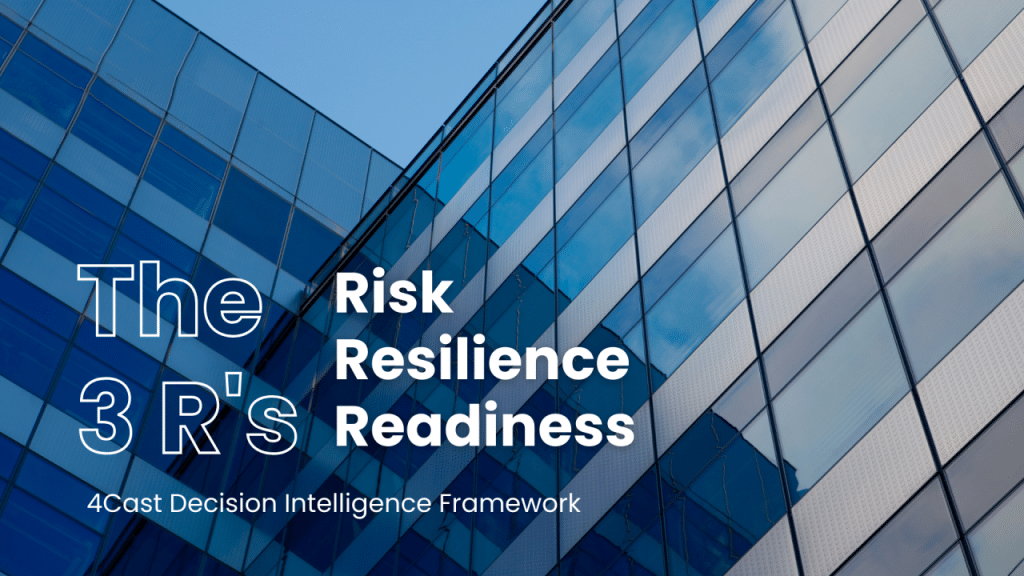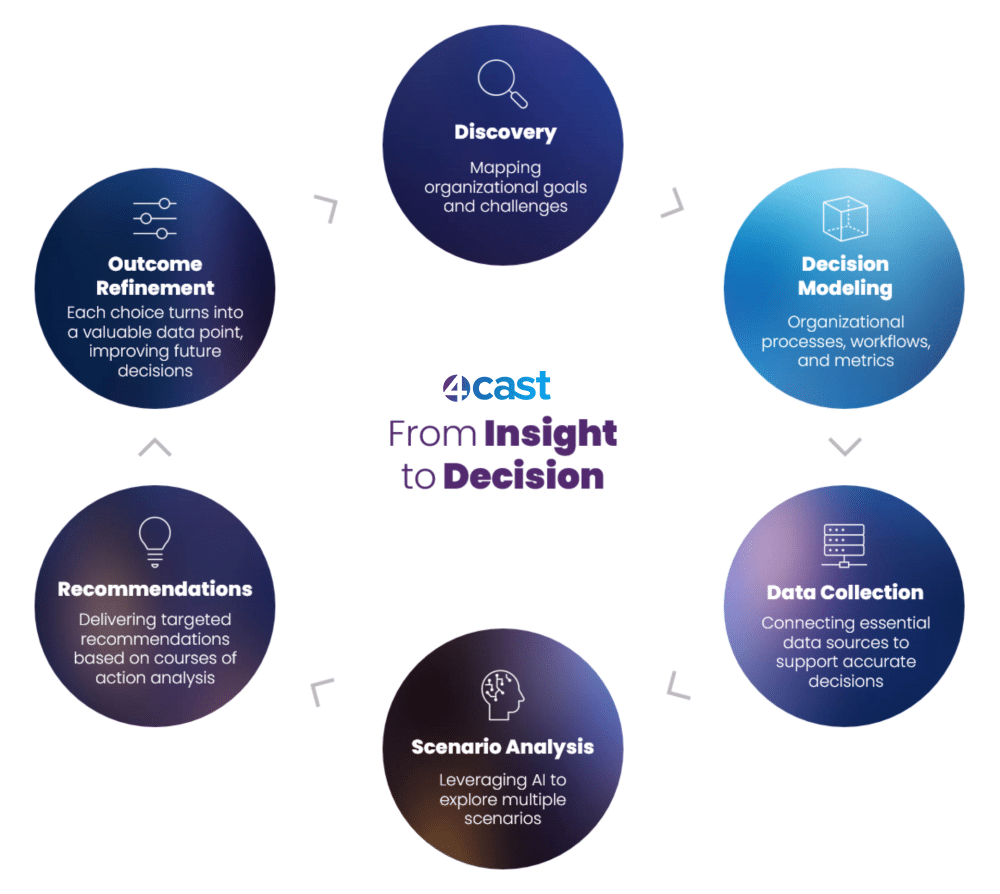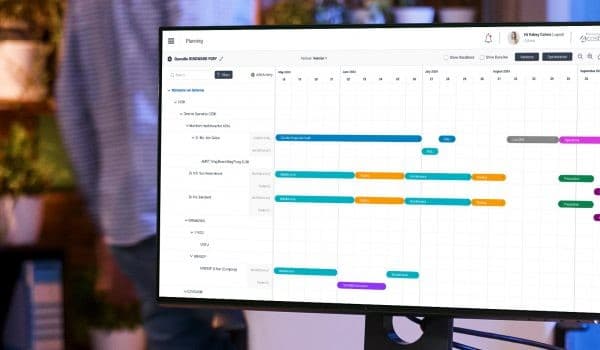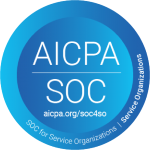Risk, Resilience, and Readiness 4Cast Decision Intelligence Framework

When adaptability becomes the lifeline, organizations that prioritize preparedness and resilience are the ones best equipped to handle disruption. Preparedness in both defense and commercial sectors isn’t a precaution; it’s a proactive stance that secures today’s operations and tomorrow’s ambitions.
4Cast Decision Intelligence (DI) framework integrates risk management, resilience, and readiness into one cohesive platform designed to enhance decision-making. By leveraging AI-driven modeling and simulation, our platform provides leaders with actionable insights and recommendations. For organizations of all kinds, this means having a clear link between the actions you take and the outcomes you aim to secure.
The Power of Decision Intelligence
Decision Intelligence (DI) doesn’t predict specific disruptions but provides leaders with tools to manage risks (external or internal) proactively, by improving the organization’s readiness for crises, and enhancing the organization’s resilience if and when crises erupt. DI supports organizations in navigating both anticipated and unforeseen challenges. This approach enables organizations to better understand the impact of disruptions on operations and outlines strategies for response, making DI essential in both strategic planning and crisis management.
Foundations of 4Cast’s DI: Business and Decision Impact Analysis
At the core of 4Cast’s Decision Intelligence is the ability to assess the impact of potential disruptions. In the commercial sector, this process is known as Business Impact Analysis (BIA), while in defense, it’s called Decision Impact Model. These impact assessments don’t just paint a picture of “what if” scenarios — they offer actionable insights that guide real-world decision-making.
This dual focus on impact and action prepares organizations for any challenges that may arise, ensuring they can maintain continuity and adapt to new realities.
4Cast Framework: Risk-Resilience-Readiness
4Cast platform uses a structured six-step process, aligning risk management with organizational resilience and readiness. Here’s how it works:

1. Discovery: Identifying Risks and Goals
In collaboration with decision-makers, 4Cast begins by mapping out critical organizational challenges and goals. Key risks are identified, setting the foundation for targeted resilience planning.
2. Decision Modeling: Structuring Decision-Making
Next, 4Cast builds structured models of the decision-making processes related to identified risks. This modeling allows leaders to evaluate their organization’s current capacity to handle and recover from disruptions.
4Cast ensures a detailed, contextualized understanding of potential vulnerabilities
3. Data Collection: Building a Comprehensive View
Relevant data from organizational systems is gathered, focusing on factors critical to operational continuity. By linking data collection to specific risks and business challenges, 4Cast ensures a detailed, contextualized understanding of potential vulnerabilities.
4. Scenario Analysis: Assessing Impact and Building Resilience
At the heart of Decision Intelligence is scenario analysis. Here, the platform simulates disruptions, utilizing the gathered data to model the impact on operations. This offers leaders insights into the organization’s resilience and helps identify areas for improvement.
Leaders are advised on actions that will minimize future risks and increase readiness for potential crises
5. Recommendations: Enhancing Resilience through Action
In this step, Decision Intelligence delivers actionable recommendations for strengthening organizational resilience. Leaders are advised on actions that will minimize future risks and increase readiness for potential crises.
6. Outcome Refinement: Continuous Improvement
Decisions made to enhance resilience are recorded and turn into data points, feeding into the platform’s model for continuous improvement. This cyclical process refines the organization’s decision-making capacity over time, optimizing recommendations as the organization evolves.

A Continuous Process for a Resilient Future
4Cast’s framework is iterative, promoting ongoing assessment and adaptation. By continuously linking actions to outcomes, organizations using Decision Intelligence can better prepare for disruptions, maintain continuity, and secure a competitive edge. In both commercial and defense sectors, this readiness loop ensures organizations are always evolving to meet the challenges ahead.

